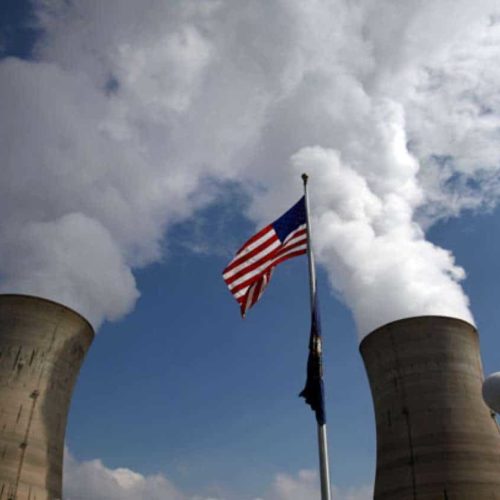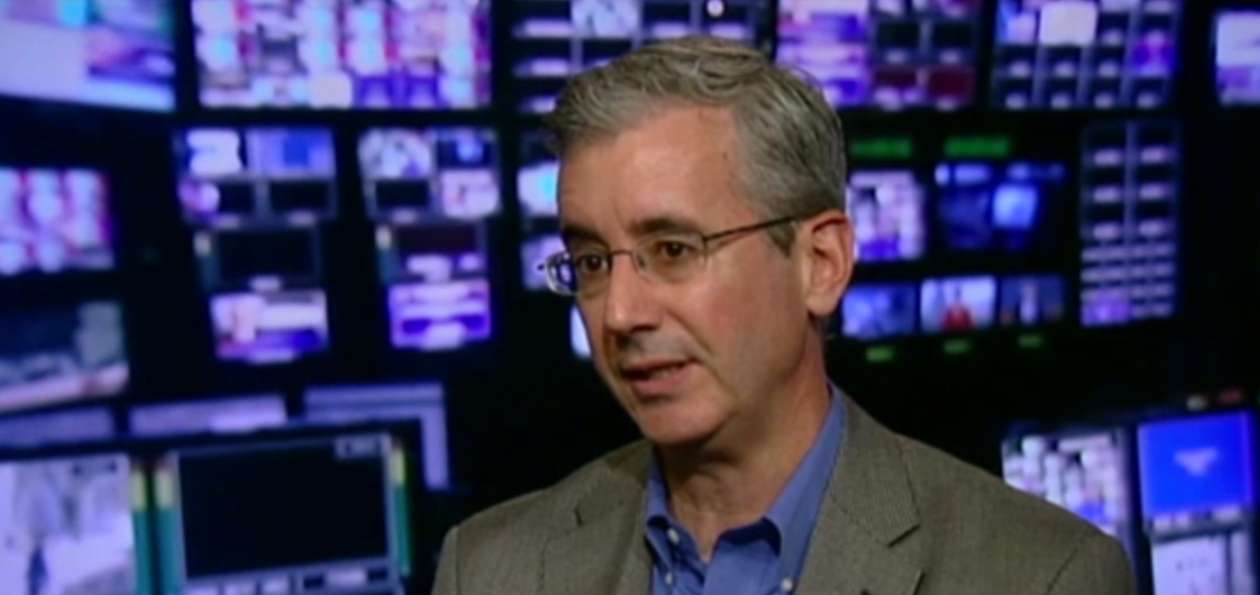Introduction
Even as Japan’s nuclear crisis deepens, the U.S. industry’s high-powered lobbying arm, the Nuclear Energy Institute, is working the halls of Congress, pressing politicians and their aides with handouts describing how safe its nuclear plants are and fending off threats of regulatory crackdowns and delays in expansion.
One of the U.S. Senate’s most powerful players on energy issues, New Mexico Democrat Jeff Bingaman, invited the energy institute to make its pitch in a standing-room only Capitol Hill gathering attended by aides of all 100 senators. That Monday meeting, in the room where Bingaman ordinarily chairs a Senate energy committee, came three days after Friday’s earthquake and tsunami triggered widespread panic in Japan amid the most severe nuclear accident since Chernobyl in 1986.
“Who better do you think could explain nuclear issues than the trade association that represents the industry?” asked Bill Wicker, communications director for the Senate Energy and Natural Resources Committee. “If you had a horrible plane crash, you would not expect to hear from Amtrak. If you had a ship lost at sea, you wouldn’t have the airline industry. So you have a nuclear accident, you expect to hear from the nuclear industry.”
The senator anticipates summoning a range of experts to public hearings, Wicker said, in a search for answers to whether the tragedy in Japan should impact regulations in the U.S.
The institute, which spent an average of more than $2 million a year lobbying Washington lawmakers and regulators since 2008, has escalated its information campaign with a 19-item Q&A it is distributing to key decision-makers and aides in the Senate and House. A copy of the pamphlet was obtained by The Center for Public Integrity.
Entitled Frequently Asked Questions: Japanese Nuclear Energy Situation, the industry document attempts to ease fears that a similar catastrophe could cripple a U.S. plant — or that politicians need fear demands for change from anxious voters.
“Given the safety record in this country, the robust regulatory infrastructure, the defense in depth that governs operations and designs, and the seismological differences between the U.S. and Japan, we believe that public support for nuclear power should not decline dramatically,” the pamphlet concludes.
The answer to Question 13 is intended to allay concerns about earthquakes and U.S. plants.
“The nuclear energy industry believes that existing seismic design criteria are adequate,” the pamphlet states. “Every U.S. nuclear power plant has an in-depth seismic analysis and is designed and constructed to withstand the maximum projected earthquake that could occur in its area without any breach of safety systems.”
Two new U.S. nuclear plants going up
“It’s classic damage control,” said Robert J. Duffy, author of Nuclear Politics in America: A History and Theory of Government Regulation and chairman of Colorado State University’s political science department.
“I think they’re attempting to appear socially responsible, and that they understand that this is a serious event. At the same time they are looking to contain the damage to the industry, in terms of congressional support, but also public support,” Duffy said.
For the U.S. industry, which counts 104 nuclear power reactors across the country, the catastrophe in Japan comes at a crucial time.
Two new nuclear power plants, one in Georgia and another in South Carolina, have begun site preparation and construction work. Both will seek construction-operating licenses from the Nuclear Regulatory Commission late this year or early next, and the industry said they will come with a light water reactor design that relies on gravity rather than pumps to deliver coolant to the core.
“We expect those new reactor projects to proceed,” the industry states in the Q&A pamphlet. “Although America’s 104 nuclear power plants are safe and meet all requirements necessary to protect public health and safety, these new designs are even safer.”
They would be the first two nuclear plants built in the United States in decades, and the first under a new regulatory process in which the construction and operating licenses are approved simultaneously, instead of separately.
That process, Duffy said, will curtail the public’s opportunity to raise questions — at a time public concern about nuclear safety is escalating. Because of that, Duffy calls “disingenuous” the industry pamphlet’s assertion of a “transparent regulatory process that provides for public participation.”
“The industry is trumping public participation even though they have opposed public participation throughout,” Duffy said. “There are fewer opportunities for the public to get involved, and there are fewer things the public is allowed to get involved about, under this new process.”
The policy change, he said, “was on the industry’s Christmas list for 25 years, but they finally got it” under the first Bush administration.
Industry doubled political contributions
The industry counts many friends in Congress.
Beyond its lobbying, the Nuclear Energy Institute PAC has been dramatically increasing its fundraising and spending over the last decade, according to federal elections records maintained by the Center for Responsive Politics.
In the 2010 election cycle, the industry PAC raised more than half a million dollars from utilities and spent $470,117. Of $322,647 in campaign contributions, approximately $240,000 went to candidates for the House, and $70,000 to those for the Senate, with industry PAC donations doled out to more than 160 politicians.
That represented more than double what the PAC raised and spent in the 2004 election cycle, when fundraising and spending was just under $200,000, the records show.
The numbers do not include millions of dollars in contributions — and lobbying expenditures — by individual utilities that own and operate the nation’s nuclear plants.
Even before the nuclear industry and its regulators from the Nuclear Regulatory Commission took center stage in a well-publicized congressional hearing on Wednesday, Nuclear Energy Institute lobbyists huddled less noticeably with members of Congress and their aides in the Senate and House, handing out the pamphlet and attempting to cool fears that similar problems could occur in the U.S.
Among those working the halls for NEI is lead lobbyist Alex Flint, a onetime majority staff director for the Senate Energy and Natural Resources Committee, where he worked on legislation that provided billions in subsidies to the nuclear industry. Flint worked for Republicans on the committee while Bingaman was the committee’s top Democrat.
“We’re trying to share, answer questions,” Steve Kerekes, a spokesman with the Nuclear Energy Institute, said in an interview. “What we talk about is [the nuclear industry’s] proven track record of safety. We talk about the regulatory process.”
Committee spokesman Wicker said Bingaman not only invited the NEI to make presentations to staffs of all 100 senators, but also is inviting other voices to make presentations. That testimony will focus on earthquakes and tsunamis, among other issues.
In a statement, Bingaman said he’s likely to hold hearings “to review the implications of what happened there for our own nuclear power generation capacity.
“My own view is that we need to have a diverse set of sources for energy production, and nuclear power is currently responsible for 20 percent of our electricity generation,” he said. “I think nuclear power can be provided in a safe reliable way and it is possible that we will learn some things from what’s happened in Japan that will persuade us to put in place additional precautions.”
Said Bingaman, in an appearance on the ABC network: “We have depended on nuclear power for many decades to meet much of our electricity needs, and I think we will continue to in the future.”
Exelon: Japan is “unprecedented” accident
Chicago’s Exelon Corp., the largest owner/operator of nuclear plants in the United States, with more than $18 billion in annual revenue, and one of the industry PAC’s key donors, has also been spreading the word in Washington.
“Our plants are safe, particularly given the different seismic patterns in our regions and the absence of tsunami-type events where we have operations,” Exelon Chief Executive John Rowe said in a statement. “Still we watch, we learn, and we will work with the Nuclear Regulatory Commission and other policymakers, as well as industry colleagues, on what, if anything, should be done to apply what can be learned from this unprecedented situation.”
He said Exelon plants are “equipped with numerous and redundant safety systems designed to protect them against earthquakes, flooding and other natural disasters,” and added: “Our plants are operating safely, and our plant neighbors are safe.”
The industry’s lobbying campaign comes as the crisis in Japan escalates daily.
A second reactor unit at the Fukushima Daiichi plant may have ruptured, media reported Wednesday, and high radiation levels in the air above the plant prompted authorities to abort a helicopter cool-down mission. Those were the latest crises in a domino-like cascade of failures that began after Friday’s earthquake and tsunami crippled the plant’s cooling systems.
Wednesday, Energy Secretary Steven Chu said the crisis in Japan appears to be “more serious than Three Mile Island.” The United States urged Americans who live within 50 miles of the plant in Japan to evacuate.
Political science professor Duffy believes the events will prompt widespread public concern over nuclear safety, at least temporarily, and lead some members of Congress to ask more probing questions of industry.
“It will remind people who were alive during Three Mile Island and Chernobyl about all the reservations they had in the first place,” he said.
“It’s pretty clear there will be short-term damage to the industry and its supporters. The greater the eventual damage in Japan,” Duffy added, “the greater the chance that nuclear power will take a long-term hit in the U.S.”


Join the conversation
Show Comments